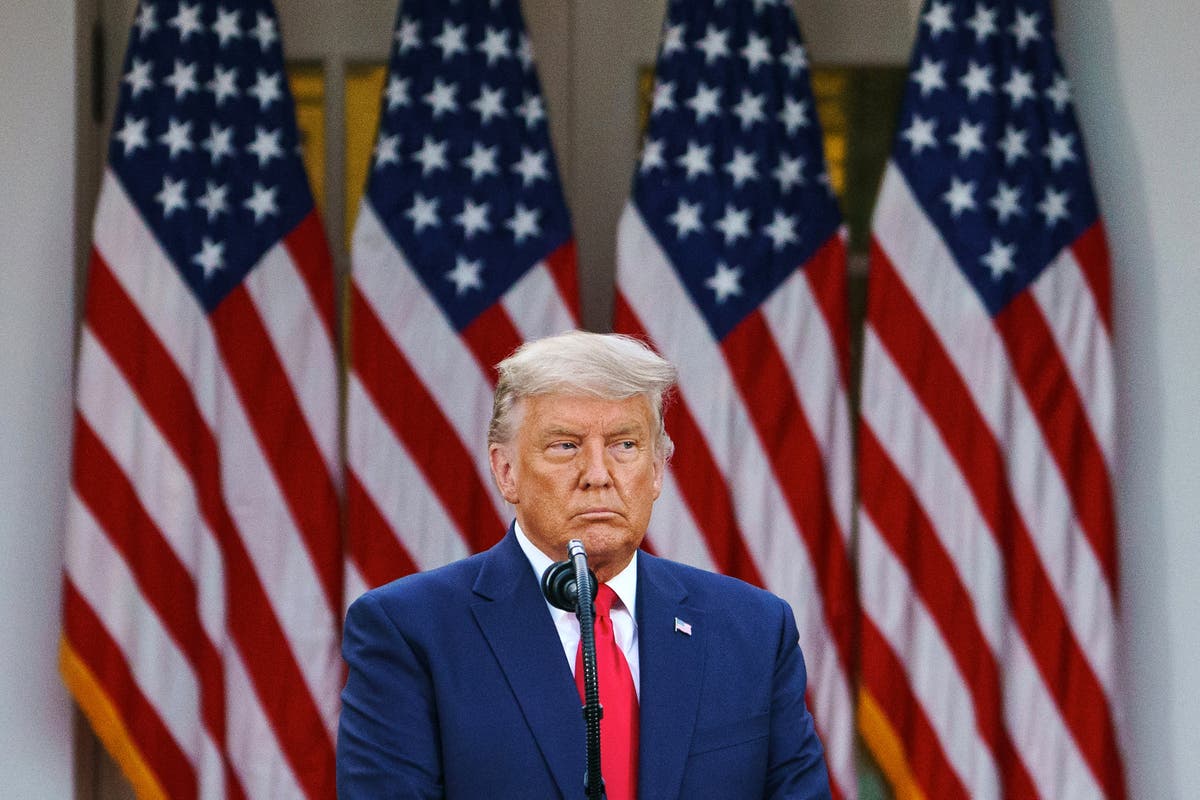Donald Trump spent Christmas Day telling his perceived enemies to “rot in hell.” The next day, the frontrunner for the Republican nomination for president told the man leading federal investigations into his attempts to overturn 2020 election results and withhold classified documents to “go to hell”.
In the middle of a posting spree on his Truth Social account, Mr Trump launched familiar attacks at special counsel Jack Smith, suggested his appointment is unconstitutional, and repeated his conspiracy theory that the multiple criminal indictments and lawsuits against him are coordinated by his rival President Joe Biden to keep him out of office.
“Biden’s Flunky, Deranged Jack Smith, should go to HELL,” Mr Trump wrote on Tuesday.
The former president’s latest screed against the special counsel comes days after the US Supreme Court rejected Mr Smith’s request to fast-track a hearing on whether Mr Trump can claim “presidential immunity” as a legitimate defence in his federal election conspiracy case.
That “immunity” question will play out at the appeals court, as scheduled.
But the nation’s highest court could soon step in for a completely different case, one that questions whether Mr Trump is eligible to appear on 2024 ballots in the state of Colorado or elsewhere.
Mr Trump’s attorneys are expected to prepare to make their case to the nation’s highest court after a brutal court ruling in the state this month.
His legal team is seeking to overturn the Colorado Supreme Court’s decision that renders him ineligible for the presidency under the text of the 14th Amendment of the US Constitution, which prohibits candidates who “engaged in insurrection or rebellion” from holding public office.
Those questions underscore the outsized role that courtrooms across the country are playing in Mr Trump’s volatile 2024 campaign, which has framed the 91 criminal charges, fraud lawsuits and sexual abuse and defamation claims against him as “election interference”.
His Truth Social post on 26 December followed a filing to the Supreme Court from former Ronald Reagan-era Attorney General Edwin Meese, whose spurious argument claims that the special counsel was illegally appointed.
Mr Meese has also defended other Trump figures like former assistant attorney general Jeffrey Clark, who is being prosecuted in Georgia for his attempts to overturn election results – charges that Mr Meese called a “major affront to federal supremacy.”
Meanwhile, a group of 24 GOP officials have urged a federal appeals court to strike down Mr Trump’s “immunity” defence.
“Former President Trump’s alleged effort to usurp the presidency presents an especially weak case for extending the doctrine of presidential immunity to a criminal case,” they wrote earlier this month.
The group includes former officials from five Republican administrations as well as constitutional scholars “and others who support a strong presidency.”
“The last thing presidential immunity should do is embolden presidents who lose re-election to engage in criminal conduct, through official acts or otherwise, as part of efforts to prevent the vesting of executive power … in their lawfully-elected successors,” they wrote.
The DC Circuit Court of Appeals will hear oral arguments on the “immunity” defence on 9 January.

Emily Foster is a globe-trotting journalist based in the UK. Her articles offer readers a global perspective on international events, exploring complex geopolitical issues and providing a nuanced view of the world’s most pressing challenges.








